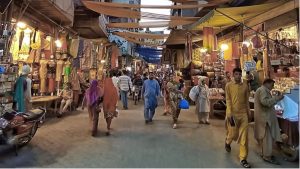Islamabad, 25 Apr, 2025: Await Free Textbooks has become a growing concern across Punjab’s public schools as the new academic session began nearly four weeks ago without the delivery of essential learning materials.
Students enrolled in matriculation classes remain without printed books, especially for newly introduced subjects.
Since the academic year commenced on April 1, pupils in Grade 9 have started their courses without access to books for recently added disciplines, including Agriculture, Health Sciences, Computer, and Fashion Design.
The delay has not only disrupted classroom instruction but has also heightened anxiety among students and their families.
Despite digital versions of the curriculum being made available online, many parents say this has done little to solve the problem.
READ MORE: Islamabad Schools to Introduce Story-Based Textbooks for Enhanced Learning
According to them, most students in government schools do not own smartphones or have reliable internet access, making it difficult to study or complete assigned tasks.
They have appealed to Punjab Chief Minister Maryam Nawaz to intervene and ensure timely book distribution.
Officials from the Punjab School Education Department have acknowledged the delay but insisted that printing is currently underway.
They assured that all textbooks would be distributed within the coming week. However, their explanation has not eased criticism from education advocates and parents, who argue that the situation could have been avoided with better planning.
This delay mirrors past setbacks, such as the 2021 textbook shortage that left students waiting months for critical academic materials due to distribution and logistical obstacles.
Observers note that given the announcement of the new subjects earlier this year, education authorities had ample time to prepare.
READ MORE: Sindh CM Orders Changes to Textbooks Before Schools Start
Teachers have expressed concern that the disruption could widen learning gaps, particularly in under-resourced areas where alternative study tools are scarce.
In some schools, instructors have resorted to verbal instruction or handwritten notes, but these are stopgap solutions at best.
As the weeks pass and students still await free textbooks, calls for systemic reform in the education supply chain are growing louder.
Education analysts stress that consistent access to textbooks is vital for academic equity and performance. With public trust wavering, stakeholders are urging the provincial administration to ensure such delays are not repeated in future academic cycles.









